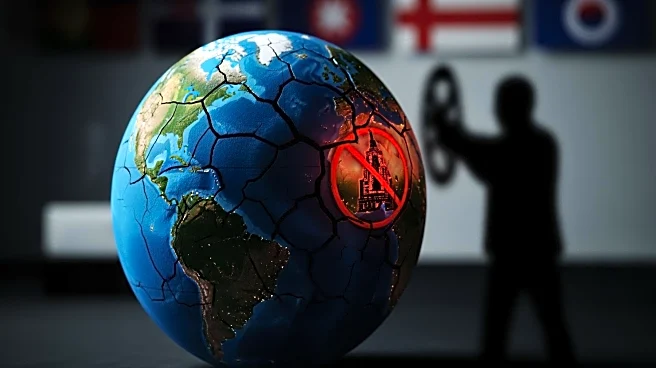What's Happening?
President Donald Trump has canceled a planned summit with Russian President Vladimir Putin in Budapest and announced new sanctions on Russia. The decision follows a realization that Putin's stance on the war in Ukraine has not changed, with continued
strikes on civilians and demands on Kyiv. The sanctions target Russia's largest oil companies, Rosneft and Lukoil, marking the first major sanctions of Trump's second administration. The move was welcomed by European allies but criticized by Putin. The decision reflects Trump's growing frustration with the lack of progress in negotiations with Russia, despite previous positive conversations with Putin.
Why It's Important?
The imposition of sanctions on Russia represents a significant shift in U.S. foreign policy under President Trump, who has previously been criticized for his approach to Russia. The sanctions aim to pressure Russia into negotiating an end to the war in Ukraine, which has had devastating humanitarian consequences. The move also signals to European allies that the U.S. is committed to supporting Ukraine and holding Russia accountable for its actions. However, the sanctions could have economic repercussions, potentially affecting global oil prices and impacting American consumers. The decision underscores the complexities of international diplomacy and the challenges of achieving peace in conflict zones.
What's Next?
The new sanctions are expected to increase pressure on Russia to engage in meaningful negotiations to end the conflict in Ukraine. The U.S. will likely continue to work with European allies to maintain a united front against Russian aggression. However, the effectiveness of the sanctions in changing Russia's behavior remains uncertain. The situation may also lead to further diplomatic efforts to find a resolution to the conflict. President Trump has not ruled out future meetings with Putin, suggesting that the door remains open for dialogue if conditions improve.

















